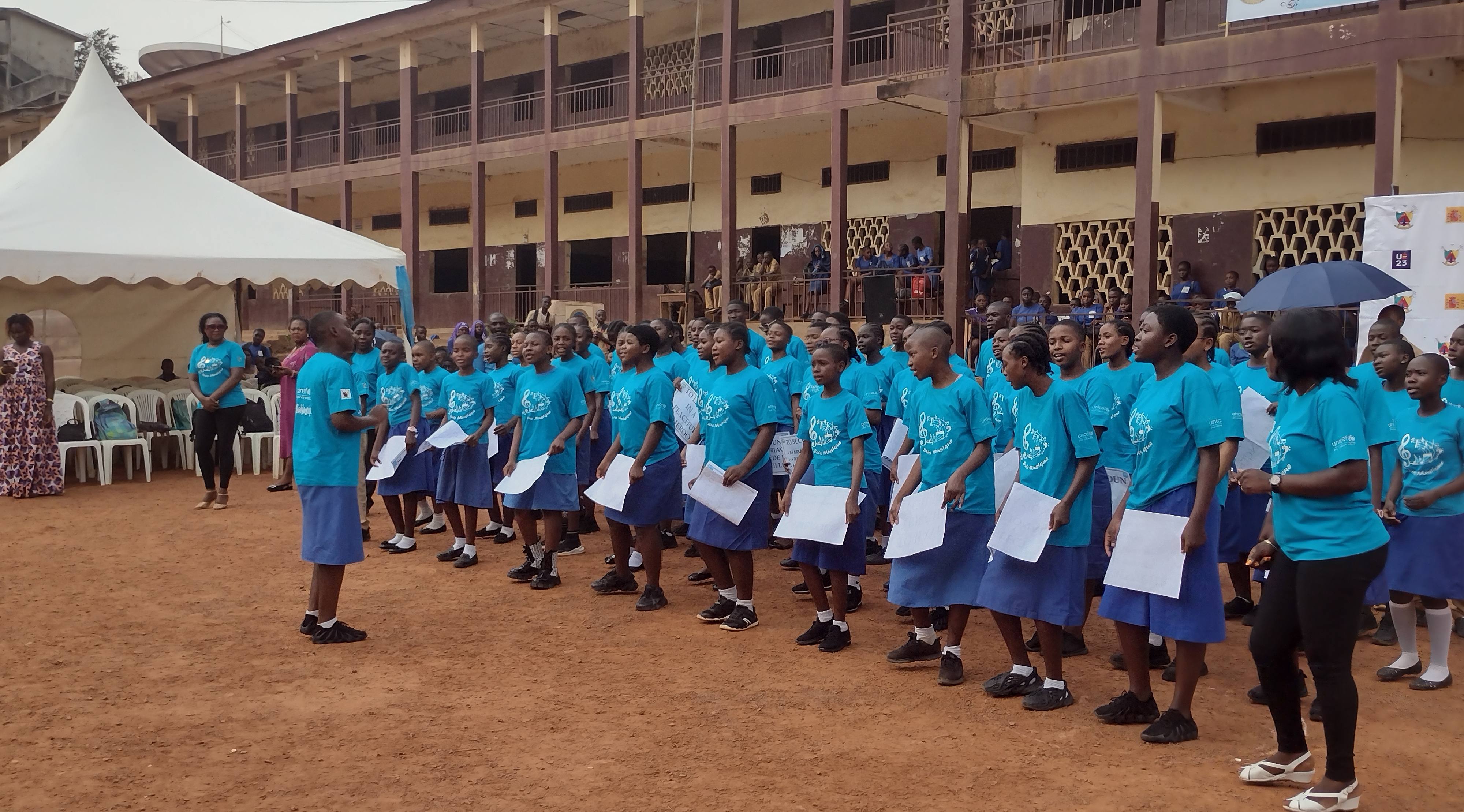Harmonizing Education: The Transformative Role Music Plays in Secondary School Students’ Learning
I Am Music - Curbing Violence in Secondary Schools through Music

The Minister of Secondary Education, Professor Nalova Lyonga, in the presence of the Second Representative of the Ambassador of Spain to Cameroon and UNICEF’s country representative to Cameroon, presided over a ceremony to inspire students to music, held at Government Bilingual Practicing High School Yaounde, on the 24 January 2024. This ceremony focused on the multifaceted benefits of incorporating music into the education of adolescents in secondary schools due to its transformative power and the various ways it deters violence and enhances their educational experience.
The Cooperation Programme between Cameroon, represented by the Ministry of Secondary Education and UNICEF for the period ranging from 2022-2026, was organized a ceremony which aims to inspire secondary school students to music as a deterrent of violence in the school milieu.
Music is recognized as a universal language that transcends cultural and social barriers. Its impact on individuals, particularly adolescents, extends far beyond entertainment and self-expression. It plays a vital role in fostering holistic development, cognitive skills, emotional intelligence, creating a conducive and protective learning environment, addresses social issues faced by children such as violence, drug abuse, early marriages etc. because it reduces aggression, enhances self-control, and provides a safe haven, and social cohesion among secondary school students.

In line with the contributions of the different participants during the event, attention was on the impact music has on the lives of adolescents as regards eliminating violence. Music leads to emotional expression and regulation in adolescence as it provides a safe outlet for adolescents to express and regulate their emotions and communicate their feelings, reducing stress, anxiety. Besides these, music enhances cultural appreciation and diversity acting as a bridge that connects students to various cultures, traditions, and historical contexts.
Diverse musical genres and styles cultivate cultural appreciation and understanding among adolescents which leads to the development of a global perspective, respect for diversity, and a sense of belonging within a broader human context. Music education promotes cultural sensitivity, breaking down barriers and nurturing a more inclusive society, thereby eliminating violence.
Besides inspiring students to discipline, perseverance, and goal setting, music brings students together, promote social integration and community building; encourages collaboration, cooperation, and mutual respect, an act which transcends social barriers, promotes inclusivity and forges meaningful connections among students from diverse backgrounds. This sense of belonging and camaraderie creates a positive school climate, enhancing the overall peaceful cohabitation.

To this, Professor Nalova Lyonga states that “… we are celebrating this day of music; music which we think is inborn in Cameroonians but which we have not been practising. Our children have not been practicing music and I wonder why, because we have music in the universities and yet in the lower educational institutions the children are not singing… and that is the thing that I observed when I came here as Minister of Secondary Education and I decided that they are going to learn how to sing because singing inspires noble values. We thought that in Cameroon where we have a lot of variety, a lot of problem with hate language and all of that, music should be one of the ways in which we inspire our children to live together peacefully”.
Joso Sophie,
ARO2/CELCOM
